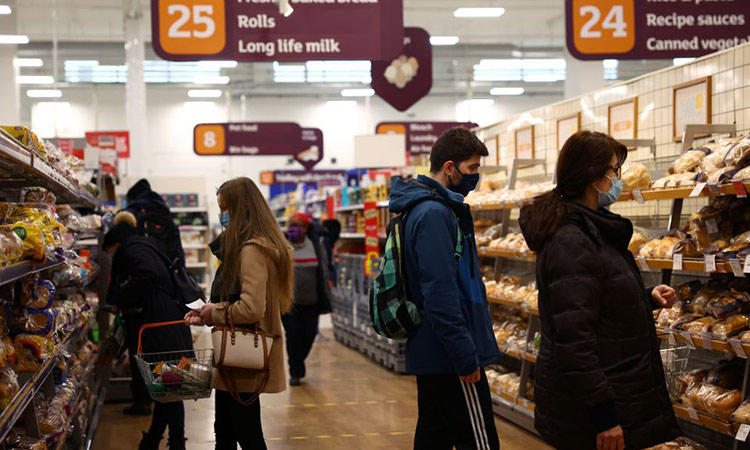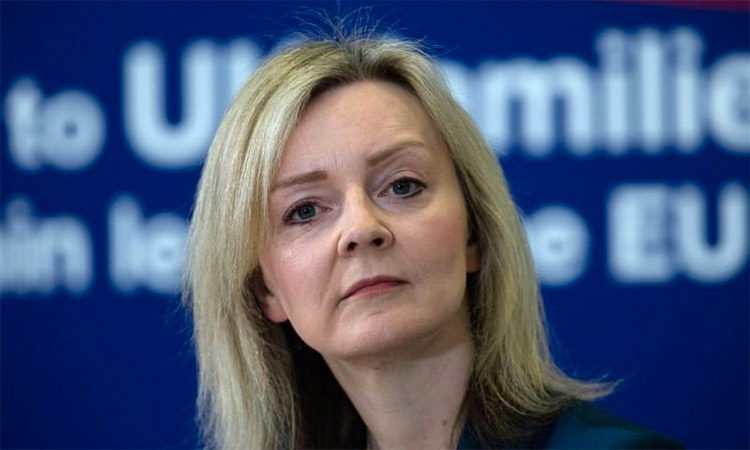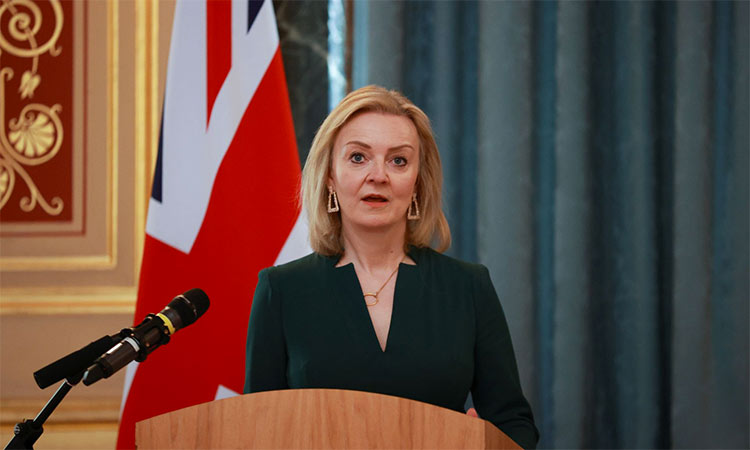BoE says new prime minister’s energy plans could slow inflation

Customers shop at a store in London.
The central bank has sped up its pace of increases in borrowing costs in a bid to limit the damage to the world’s fifth-biggest economy from a leap in inflation above 10 per cent, even though it expects a recession to start later this year.
The BoE forecast in August that inflation would exceed 13 per cent, and some economists have said it could top 20% if gas prices - pushed up by Russia’s invasion of Ukraine - stay high.
However, the picture will change if Truss goes ahead with reported plans to cap energy household energy bills and offer support to businesses, BoE chief economist Huw Pill told lawmakers on Wednesday.
While the subsidies for households could add to demand and create more inflation pressure, “net-net on the implications for headline inflation in the short term, I would expect that to see a decline,” Pill said.
Truss moved into Downing Street on Tuesday, promising to help Britain through its gas price shock. She is due to announce details of her plans on Thursday.
Pill said the implications for monetary policy remained unclear, but added that the BoE would ensure government spending did not generate inflation.
Economists have said an energy price cap could mean inflation has peaked, though longer-term it might add to price pressures if there is a levy on future bills to compensate energy giants for their losses.
BoE Governor Andrew Bailey, also speaking to parliament’s Treasury Committee, said Truss’s impending announcement would provide useful clarity to markets.
British government bond prices have slumped on worries about the scale of borrowing needed to fund Truss’ cost-of-living support plans and the tax cuts she has promised, pushing 10-year British government bond yields to their highest since 2011.
“It’s important that there is a clear way forward on policy ... That will be important for markets to understand what is going to happen.”
Deutsche Bank said on Wednesday that the energy price support and tax cuts planned by Truss could cost 179 billion pounds ($205 billion), about half Britain’s historic pandemic spending push.
New finance minister Kwasi Kwarteng told bankers and investors that borrowing would rise in the short term but he would ensure fiscal discipline in the medium term.
Bailey said the comments by BoE officials on Wednesday should not be read as a signal about what the central bank would do on interest rates next week.
Investors scaled back their bets on an outsize 75-basis-point increase on Sept. 15 to around 56 per cent.
Investors are pricing in the BoE raising rates to at least 4.25 per cent by the middle of 2023, up from 1.75 per cent now, although most economists have said they think it will peak at a lower level, given the likelihood of a recession starting later this year.
The last time the central bank raised rates by at least 75 basis points was in 1989, excluding an attempt to shore up the pound in 1992 which was reversed in less than a day.
Bailey rejected a suggestion that over-aggressive rate rises by the BoE were adding to the headwinds facing Britain.
“The person who is going to put this economy into recession is Vladimir Putin not the MPC,” he said.
Bailey was asked about another promise made by Truss: a review of the mandate of the BoE, which is tasked with aiming for 2% inflation.
He said moving to a money supply target would not be sensible and a nominal gross domestic product target would not be an obvious improvement.
Bank of England Governor Andrew Bailey said on Wednesday that he welcomed the plan by new British Prime Minister Liz Truss to announce this week how her government will support households through the energy crisis.
“It’s not for us to comment on what fiscal policy will be and we will wait and see what it is...but I do very much welcome the fact that there will be, as I understand it, announcements this week because I think that will help to, in a sense, frame policy and that’s important,” he said.
“It’s important that there is a clear way forward on policy... That will be important for markets to understand what is going to happen.”
Meanwhile the sterling slipped against a rampaging dollar on Wednesday, lingering near 2-1/2 year lows as its brief resurgence a day earlier petered out.
The pound fell as much as 0.8 per cent at $1.14185, its lowest since March 2020. A fall below $1.1413 would take it to its weakest level since 1985, according to Refinitiv data.






